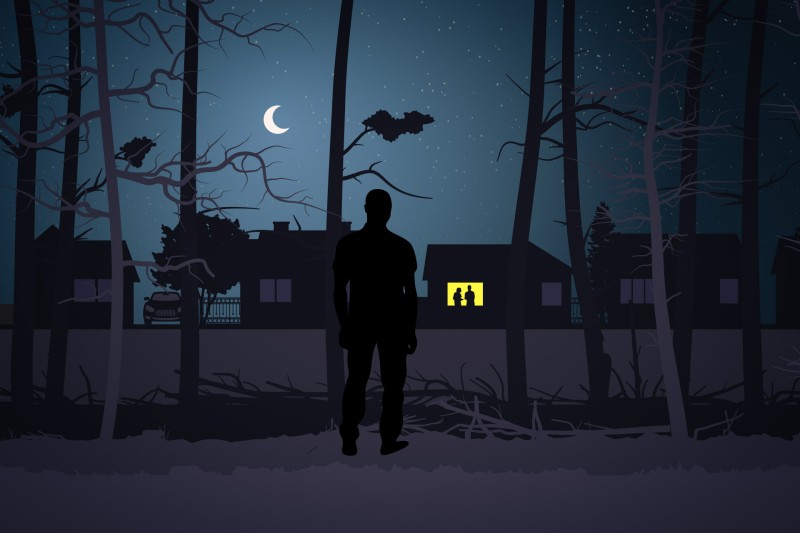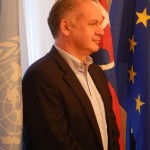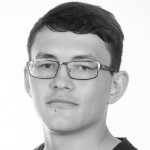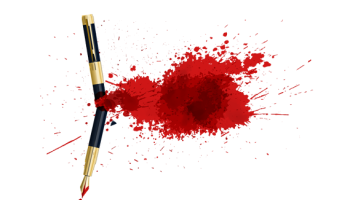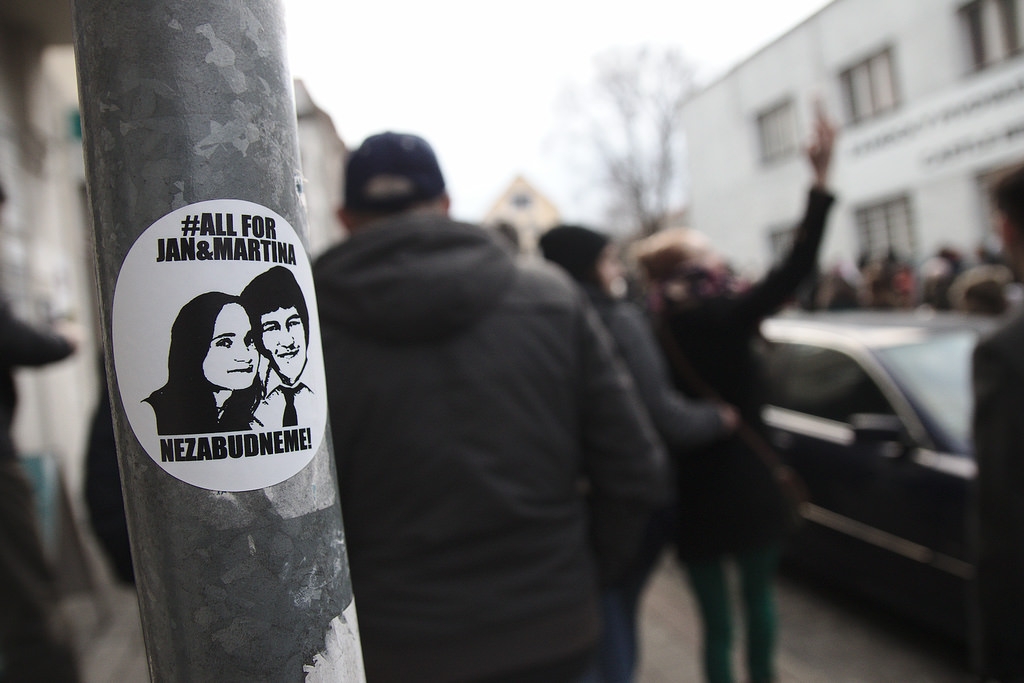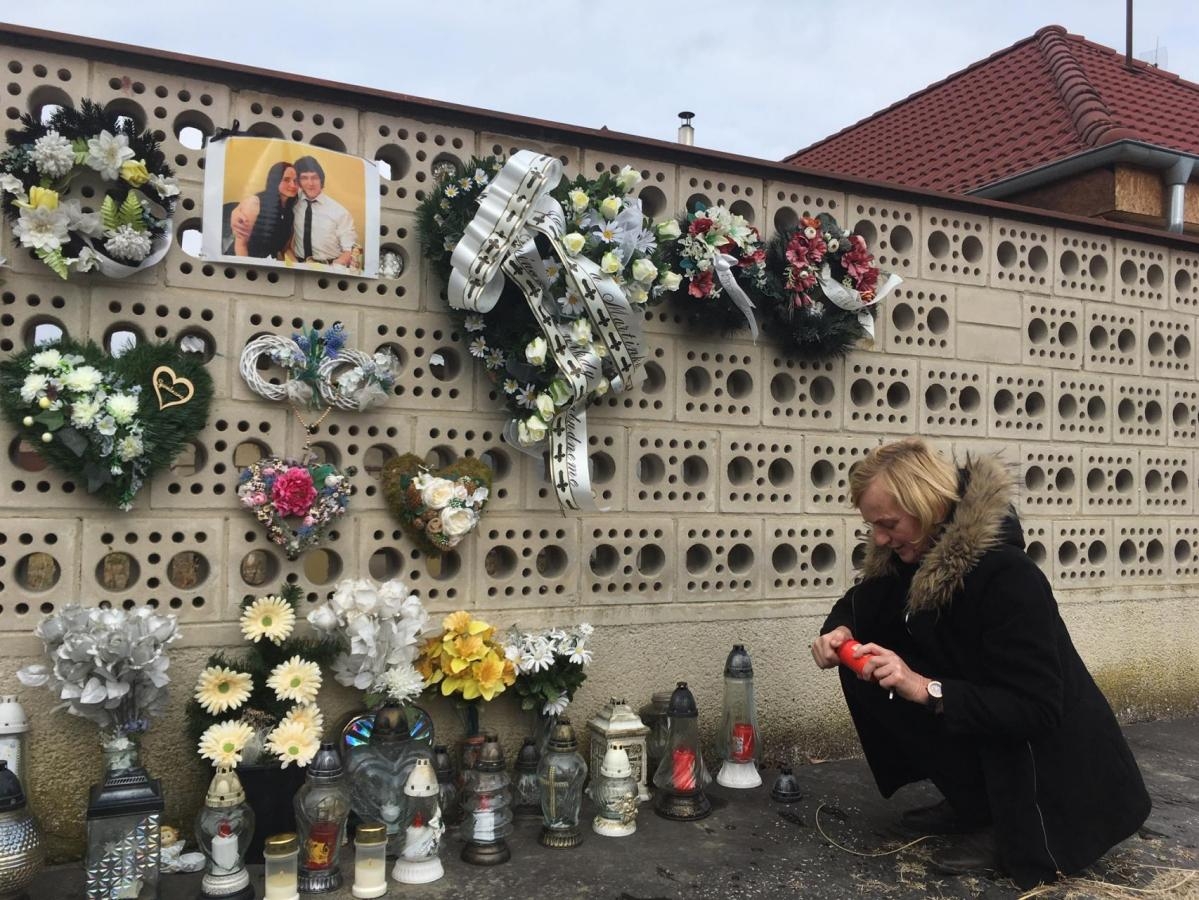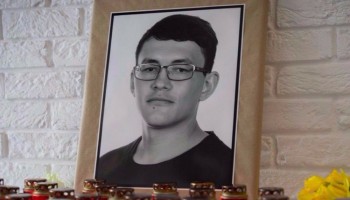The offer was straightforward and financially attractive: Kill a man in return for 50,000 euros in cash and the forgiveness of more than 20,000 euros in debt. Zoltán Andruskó, a Slovak pizzeria operator, quickly accepted – a decision that forever changed both his life and the history of Slovakia.
The woman Andruskó said offered the deal was Alena Zsuzsová, a fixer who worked for one of Slovakia’s richest men, Marián Kočner. Sitting together in a car outside her house, Zsuzsová gave Andruskó the details: a name, a couple of photos, and a home address. It was all he needed.
The target was Aktuality.sk reporter Ján Kuciak. The information about the deal to kill him comes from a Slovak police investigation that was reviewed by OCCRP.
The assignment wasn’t a natural fit for Andruskó. He wasn’t a killer. He was a bald, middle-aged businessman with a pot belly who later said he didn’t really want to kill anyone, mainly because he didn’t know how.
So he asked a friend for help, a former police officer. Tomáš Szabo looked the part of a Hollywood assassin: tall, muscular, and tattooed, with a strong jaw and a shaved head. He was also good with guns and willing to take on the assignment.
He also recruited a resourceful cousin, Miroslav Marček, an athletic former soldier who knew guns and could drive the car. The team was ready.
Any assassination requires surveillance to find the right opportunity. The men visited the home of Kuciak and his fiancée Martina Kušnírová in the southwestern village of Velká Mača, about 60 km from Bratislava, the capital, at least seven times.
This account of their repeated visits to the town and of the assassinations is built on an OCCRP review of police investigative documents, which are partly based on closed-circuit TV footage.
Szabo and Marček first visited Velká Mača in the afternoon of Monday, Feb. 5, 2018, driving a white Peugeot 206.
The house Kuciak and Kušnírová had recently bought and planned to refurbish proved an ideal location for a murder. It was outside the city center, bordered a dense forest, and had a good road to a highway. There were no obvious surveillance cameras on the street.
Two days later, on Wednesday, Feb. 7, the men returned to Velká Mača twice. In the morning they took the white Peugeot; in the afternoon, they switched to Andruskó’s silver Skoda Superb.
They returned again that weekend, circling the village on a circuitous route that had no public traffic cameras and finding a spot near a football field where they could park the car without raising any suspicion.
Afterward, the trio identified a key problem. How could they communicate without leaving a digital trace? They devised a system of dialing each other but not answering to send signals they thought wouldn’t be logged by the mobile operator.
Their next visit to Velká Mača was on a snowy evening five days later. On this trip, and on the subsequent one, the men appeared to be monitoring Kuciak’s evening routine.
That night, Andruskó drove his companions to the edge of the village, dropped them off by the playing field, and then drove to a gas station to get a snack. At 7:22 p.m., the cousins walked by Kuciak’s house. Twelve minutes later, they gave Andruskó a one-ring call and he picked them up at the football field.
On the following night, Feb. 16, the men arrived in Velká Mača in the white Peugeot at 6:49 p.m. Szabo walked to Kuciak’s house and returned to the pick-up point 20 minutes later.
To further obscure their identities, the men decided to use “burners,” cheap mobile phones they could toss after a single use. The next day they bought two, using a middleman to avoid Slovakia’s registration requirements.
At some point before the murders, Szabo and Marček prepared their weapon, a Luger 9 mm with a silencer. It would later be discovered that the gun was loaded with modified ammunition: Some gunpowder was removed from the cartridges to make the bullets travel more slowly and quietly.
The men made one final visit for reconnaissance. Shortly before 7 p.m. on Feb. 19, Szabo walked around the football field toward the couple’s house at Brezova 558. It should have taken just a few minutes, but Szabo didn’t hurry, perhaps checking possible escape routes. About 20 minutes later, he dialed Marček on his burner phone, let it ring once, and hung up. Marček soon picked him up in a silver Citroen Berlingo.
Ján and Martina’s Last Day
Neither Ján nor Martina, both 27, had noticed the surveillance or had any idea they were being targeted. The story Ján was working on with OCCRP — an investigation into how the Italian ‘Ndrangheta mafia infiltrated his country — involved dangerous figures, but so far he had simply been requesting public records and doing research online.
No reporter had been killed in Slovakia in recent memory, and as far as his friends and family knew, Ján hadn’t received any physical threats. He had no reason to think his life was in imminent danger.
The couple also had a lot on their minds. Their wedding was coming up in early May, and they were busy with preparations. The last text messages and phone calls they exchanged with their families were about the celebration. Ján had just discussed the labeling of the wine bottles with his mother.
They were also refurbishing and outfitting their new home, visiting pawn shops to pick up items like a vintage ‘60s television set and an old post office table.
The two had met while living in a student apartment in the picturesque city of Nitra in western Slovakia.
Ján proposed to Martina on a trip to Georgia on the last day of January, 2017.
A devoted Christian, she asked her mother for permission to move in with Ján before they were married. Her mother acquiesced, but only after securing a promise from him that his relationship with her daughter was no short-term fling.
Now their lives seemed to be moving forward. Ján was a successful and talented investigative reporter, more an analyst than a storyteller, who loved to dive into corporate documents many of his peers would find mind-numbing. Martina was happily working as an archaeologist.
As the couple planned a quiet night at home on that Wednesday, Feb. 21, Szabo and Marček met at 4:40 p.m., climbed into the Citroen Berlingo, and drove towards Velká Mača, avoiding many of the town’s surveillance cameras. They switched off their personal phones and turned on their burners.
Szabo, the former police officer, stopped the car near the football field at 6:28 p.m. Marček, wearing black, stepped out into the cold evening.
He took his burner phone and Luger. The weapon was fitted with a silencer and loaded with the modified, quieter ammunition. At 6:31 p.m. he headed toward the couple’s house.
Unexpectedly, they weren’t home.
Ján had returned from Bratislava by train as usual, but his car battery had died and Martina had to go pick him up. They got home at about 7:30 p.m. By then it was dark, and the couple settled in to make some tea. Martina planned to call her mother to talk about their project to create a historical narrative of her home village of Gregorovce.
Marček was waiting nearby. At 8:21 p.m., he entered the yard and knocked on the front door, which was never locked. Ján opened the door, and Marček fired two bullets into his chest, near his heart. Marček stood so close that the barrel of the silencer left burns on the young journalist’s chest. Ján fell to the floor.
Then Marček saw Martina in the kitchen. He fired at her too, placing a single shot between the eyes.
At about that time, Martina’s mother called. There was no answer.
Marček left the house through the back yard and returned to the football field, where he used his burner to call for a pickup. At 8:25 p.m., only four minutes after the murders, Szabo collected him by the field and the pair left town.
They drove to Andruskó’s house in Kolarovo to tell him the job was done and to get their money. When Andruskó heard that a woman had also been killed, he said it shouldn’t have happened. It wasn’t part of the plan. Nevertheless, he promised to deliver the money soon.
The Payoff
The next day, Andruskó met Zsuzsová, the woman who allegedly ordered the killing, in a parked car in front of her house. There had been a complication, he said: a second murder.
Zsuzsová became agitated, yelling that it was “impossible.” Still, she later called Andruskó to have him pick up his payment. The 50,000 euros were delivered in a stack of 500’s wrapped in a napkin. Andruskó kept 10,000 and divided the rest between his accomplices.
Zsuzsová’s motives for ordering Ján’s killing are unknown; he had never written about her. But she worked for Marian Kočner, a prominent businessman about whom Ján had written extensively. Andruskó would later tell police that Zsuzsová told him that Kočner paid for the killing.
Kočner has not been charged in connection with the murders, though he has been detained for the same financial crimes Ján had written about.
Kočner could not be reached for comment, and an attorney representing him declined to comment.
“There’s Been a Crime, We Have to Go”
Ján and Martina’s bodies would lie undiscovered for four days.
After two days of being unable to reach her daughter, Martina’s mother became uneasy and phoned Ján’s family to see if they had been in touch. The Kuciaks thought the young couple might simply be busy.
After two more days, Zlata Kušnírová started to panic. She called the Kuciaks again, then the local police.
The officers didn’t seem overly concerned. She remembers one telling her, “You know those young people, they like to drink and have fun.”
At that point, Zlata asked a relative who lived about an hour from the couple to check on them. The Kuciak family decided to do the same, urging Ján’s sister Mária to drive there from her home in Nitra, some 30 minutes away.
About an hour after Zlata’s call to the police, a unit was dispatched to the house. As officers entered the yard, they saw a body through the kitchen window. Fearing a gas leak, they called firefighters and an ambulance.
A few minutes later, Zlata’s family member arrived. Looking through a basement window from the yard, she saw a leg on the stairs, but police wouldn’t let her inside. When she asked an officer whether the couple had been shot, he nodded.
Ján’s father Jozef said that his daughter arrived about ten minutes later.
“She called me, saying the police wouldn’t let her in, but the ambulance didn’t have a patient, so we relaxed a bit,” he said. “We thought someone might have broken into the cellar or something. We never imagined something like murder.”
Zlata’s family member did know, and was deeply shaken. Unable to bring herself to deliver the news, she phoned Zlata’s son Lukas and asked him to take his mother to the police station. Something bad had happened.
“‘Mom, there’s been a crime, we have to go,’” Zlata recalled him telling her. “By that time, Lukas already knew what happened … but he gave me no details, so I was pushing him all the way to Velká Mača to drive as fast as possible.”
They arrived at the police station after a three-hour drive that started at midnight. “When we came to give police testimony, the Kuciaks were already there, crying. I asked what happened, and they couldn’t tell me,” she said.
“Then a police officer ... said, ´Oh, there she is, the woman from the east, the mother of the murdered girl.’ That's how I learned Martina was murdered,” she said. “I was out of my mind.”
The interview with police took about two hours. By the time Zlata left the station, it was early morning. It was chilly, but she didn’t feel the cold.
“I wanted to go to Velká Mača. Not inside the house, I couldn’t bear it. Just closer to them, closer to the house. But they didn’t let me in. I wanted badly to hug and cuddle Maťa at least once again,” she said.
Ján’s brother Jozef said that the day was like a bad dream. Even now, a year later, he doesn’t remember much of what happened. "I was totally out of my mind,” he said.
The Search for Justice
When word of the murders broke, Slovaks were shocked.
Within days, the biggest protests since the fall of communism broke out across the country. Tens of thousands of citizens demanded an independent investigation and decried the influence of organized crime that Ján had exposed.
The killings filled the news for days, and journalists made daily trips to Velká Mača. Those who worked with Ján most closely received police protection. The offices of Aktuality, the website where he worked, were heavily guarded.
Within months, the government resigned, including Prime Minister Robert Fico, several ministers, the head of police, and the director of the National Criminal Agency’s anti-corruption department.
Andruskó, Szabo, Marček, and Zsuzsová were all arrested and are facing various murder charges. No one else is known to have been charged with orchestrating the crimes.
Andruskó’s attorney could not be reached for comment; Marcek’s said he had no comment, and Zsuzsová and Szabo’s lawyers didn’t respond to inquiries.
The killings remain unfathomable for the Kuciak and Kušnírová families.
Zlata still sometimes goes to the couple’s house just to caress their things.
“Even the last time, when I visited Velká Mača, I took one of Martina’s dirty socks from the laundry,” she said. “I wanted to hold it tight, close to me, to have a piece of Martina with me for at least a little moment.”
Corrections and clarifications, Feb. 21, 2020: The original version of this story, as published on Feb. 20, 2019, was based in part on a police investigation that has since been supplemented by further court testimony. To incorporate the newly revealed information, the story has been updated as follows: A reference to Zsuzsová’s previous work has been removed. The description of the killer entering Kuciak’s house has been updated to more accurately describe the precise sequence of events. A description of the roles of the two accomplices, Szabo and Marček, has been corrected.
